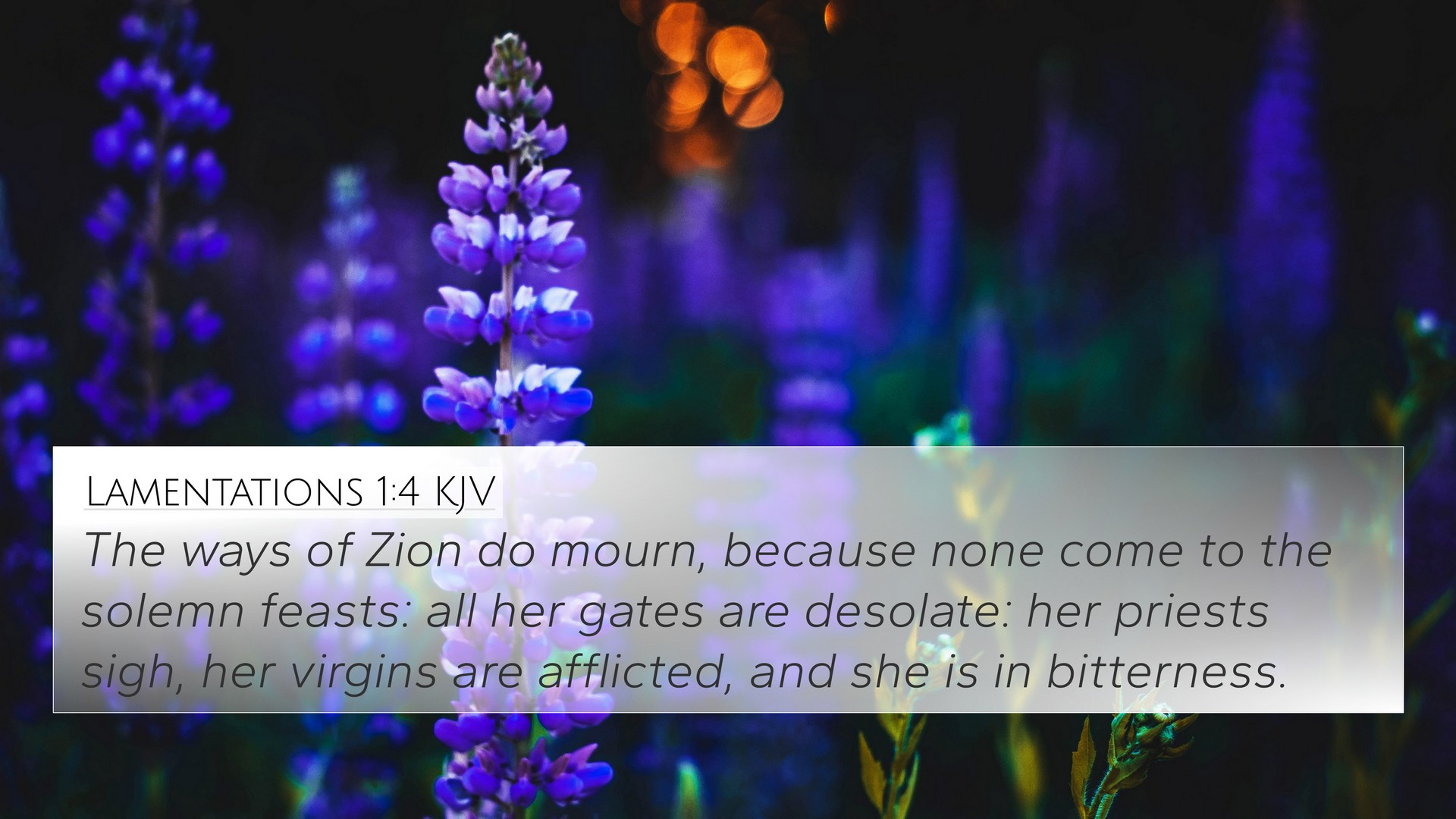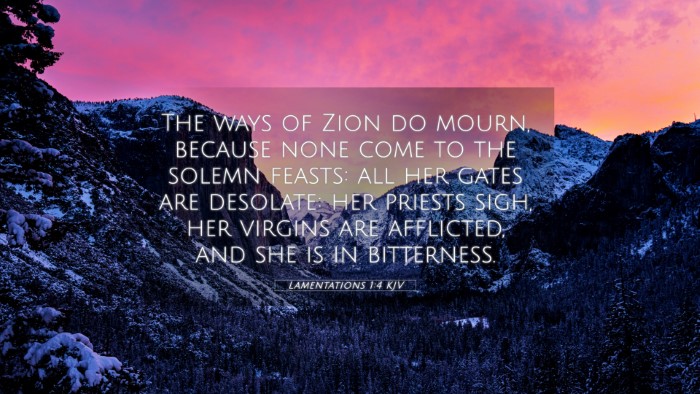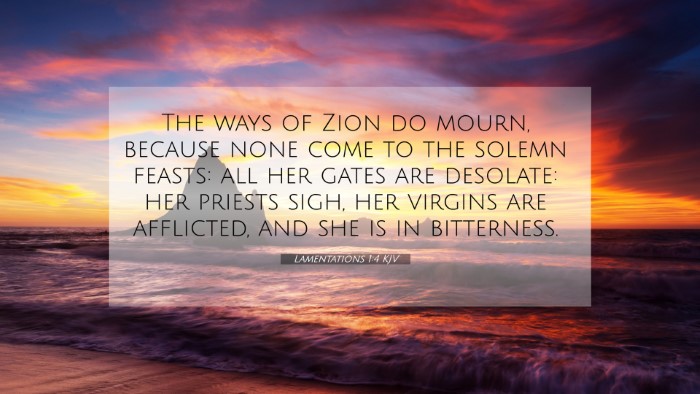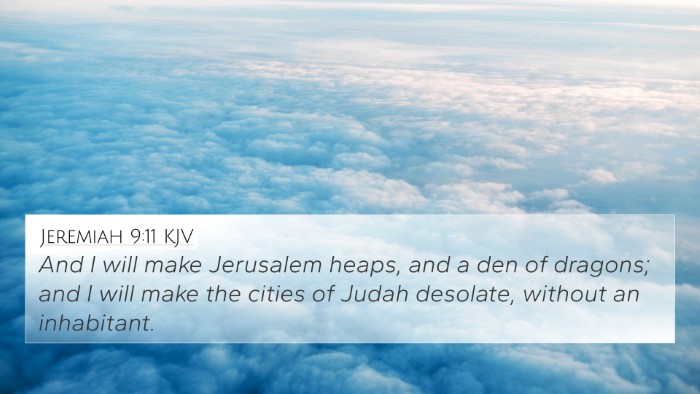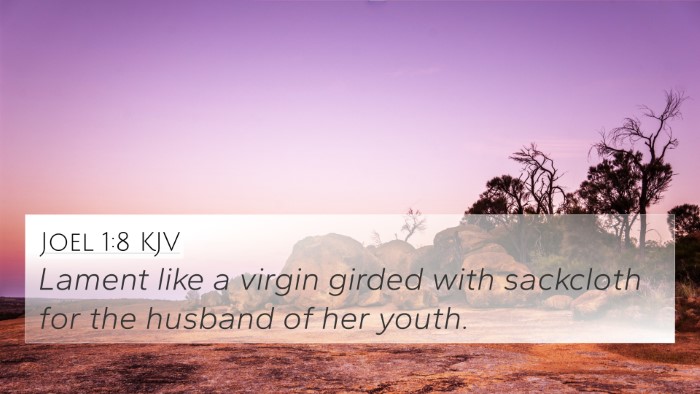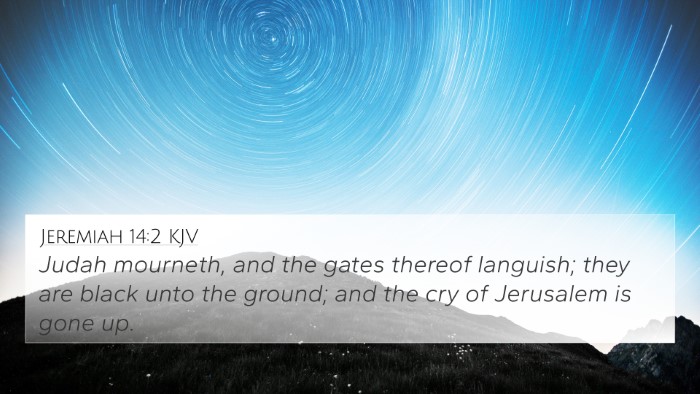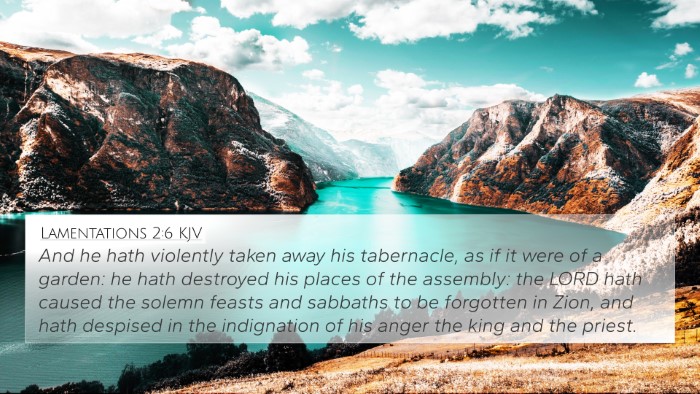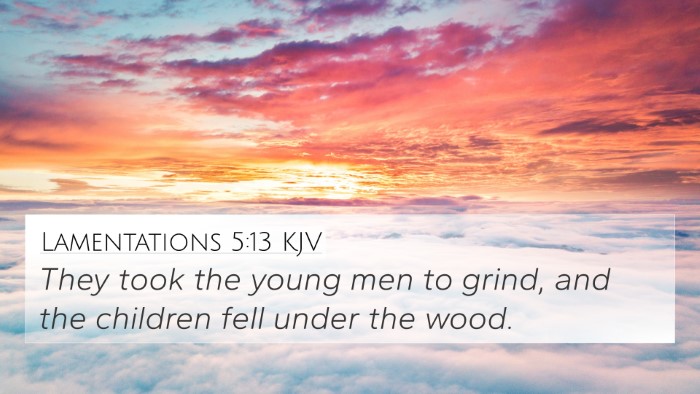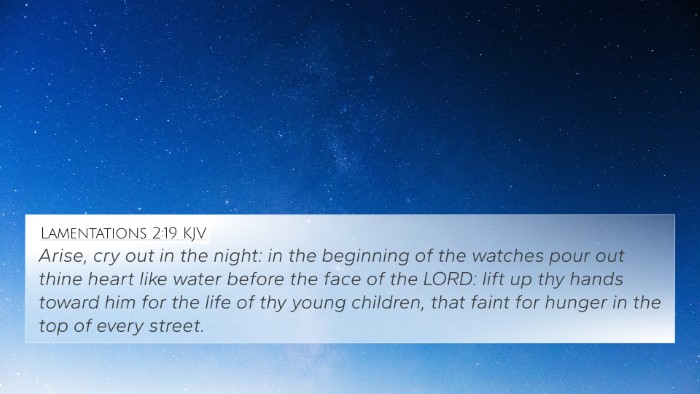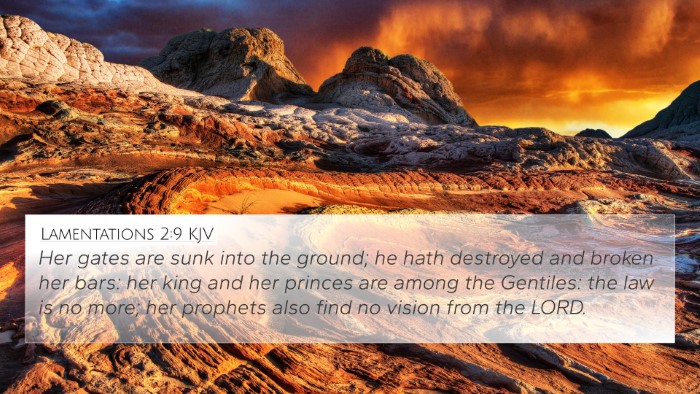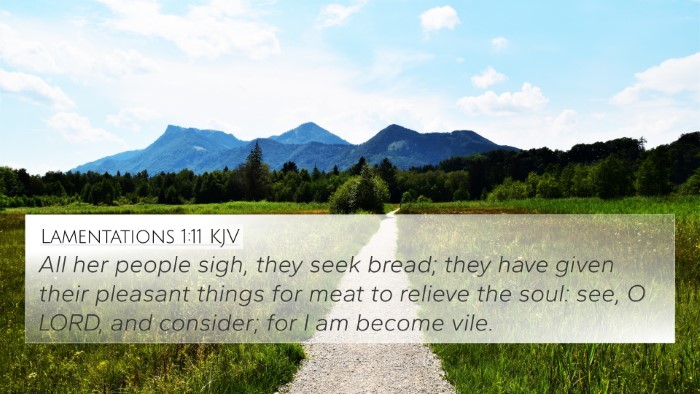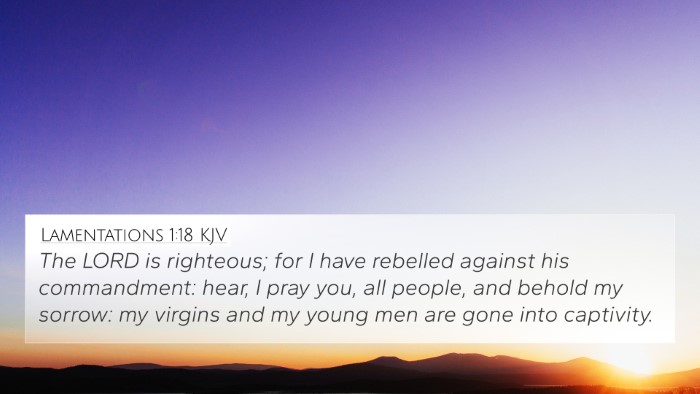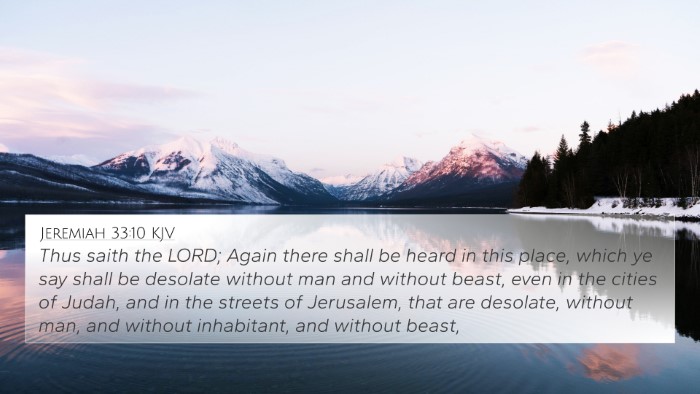Lamentations 1:4 - Summary and Meaning
Lamentations 1:4 states: "The ways of Zion do mourn, because none come to the solemn feasts: all her gates are desolate: her priests sigh, her virgins are afflicted, and she is in bitterness." This verse captures a profound sense of loss and mourning, symbolizing the devastation experienced by Jerusalem after its destruction. Below is a detailed analysis combining insights from public domain commentaries.
Contextual Background
The Book of Lamentations, traditionally attributed to the prophet Jeremiah, is a poignant reflection on the destruction of Jerusalem following the Babylonian conquest. This specific verse highlights the sorrow of Zion (Jerusalem) due to the abandonment of religious practices and the desolation that ensued.
Verse Analysis
"The ways of Zion do mourn" refers to the physical and emotional journey to the holy city, now filled with grief. Zion's sorrow is a metaphor for the collective mourning of the people who can no longer participate in feasts and worship.
- Matthew Henry's Commentary: Henry emphasizes the sorrow not only in the city but in the people's hearts, mourning the absence of worship and the desolation of their once sacred spaces.
- Albert Barnes' Notes: Barnes elaborates on the "solemn feasts," which signifies the lost opportunities for communal worship and offerings that contributed to the covenant relationship with God.
- Adam Clarke's Commentary: Clarke indicates that the description of desolation reflects the moral and spiritual decay of the nation, a consequence of their disobedience to God.
Thematic Connections
This verse resonates with several themes throughout the Bible, particularly regarding divine judgment, communal lament, and the hope for restoration. Here are some notable connections:
- Isaiah 64:10-11: "Your holy cities have become a wilderness," reflecting a similar mourning for Jerusalem.
- Ezekiel 9:4: God's command to mark those who grieve over the abominations, paralleling the sorrow expressed in Lamentations.
- Psalm 137:1-4: The psalmist's lament by the rivers of Babylon echoes the sorrow of the exiled Israelites longing for Zion.
- Jeremiah 14:17: A call for repentance as Jeremiah mourns for the people, similar to the emotions expressed in Lamentations.
- Lamentations 3:48-51: Further expressions of grief and the feeling of abandonment by God are developed.
- Zephaniah 3:18: God’s promise to restore the people after their lamenting period, hinting at hope amid despair.
- Hebrews 13:14: "For here we have no lasting city," connecting the Christian perspective of earthly losses to eternal hope.
Cross-Referencing Analysis
The exercise of cross-referencing Biblical texts reveals deeper truths about suffering, loss, and the hope of restoration. Engaging in comparative Bible verse analysis allows believers to understand the continuity of God's faithfulness despite human failures.
Tools for Study
Utilizing resources like Bible concordance and Bible reference resources can help in identifying similar themes across the scripture. How to use Bible cross-references effectively can lead to richer understanding and meaningful connections between verses.
Conclusion
The desolation of Zion in Lamentations 1:4 encapsulates not only a historical event but also a spiritual reality that resonates across scriptures. Understanding this verse within its broader biblical context provides profound insights into the nature of sin, judgment, and the hope for redemption. Through tools for Cross-referencing Bible study, believers can explore the interconnectedness of scripture and deepen their faith.
